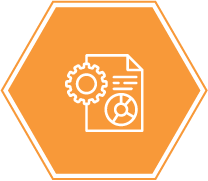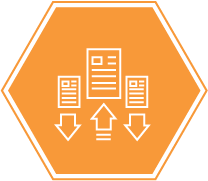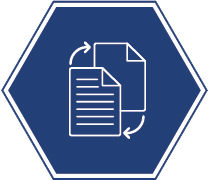Ultragenic’s Robotic Process Automation (RPA) implemented at a Pharma Client, delivered rapid ROI with minimal upfront deployment costs.
Adverse Event (AE) case processing and reporting in the PV industry are core activities in monitoring the safety of medicinal products throughout their lifecycle. Pharma companies spend a significant part of their PV budget on case processing, since the collection and reporting of data related to adverse events associated with the use of their medicinal products is mandated by the regional health regulatory authorities in the US, EU and other countries. This budget has traditionally seen an increase year on year due to the rise in case volumes and the complexities of collecting data from an increasing number of disparate sources. Considering the continuously increasing workload, the limited resource pool, and the strict reporting timelines, it is critical for the pharma companies to apply automation to this process to make it more efficient and cost effective.
The Challenges
EudraVigilance (EV) is a centralised European database of suspected adverse reactions to medicines that are authorised or are being studied in clinical trials in the European Economic Area (EEA). The European Medicines Agency (EMA) operates the system on behalf of the European Union (EU) medicines regulatory network. (source: www.ema.europa.eu )
The EudraVigilance case processing journey involves receipt, validation, triaging and case acceptance / rejection in their PV safety system for all serious and non-serious, spontaneous and post marketing cases. All these steps involved in case processing were being performed manually by the case processing teams. The daily case volume ranged between 500 ~ 1000 Individual Case Safety Reports (ICSRs).
In addition to the challenges of a heavy burden on costs and time, the manual process is also prone to human errors and is not easily scalable.
Our Approach (Solution)
After an extensive consultation with the client, we decided to introduce Ultragenic’s Robotic Process Automation (RPA) technology to their case processing. We created bots that could simulate human actions in carrying out the various steps in the case processing journey, thereby automating the entire process. For instance, the Ultragenic RPA bot could log into the safety system, navigate through the application, filter the EV download cases, perform the intake operation of acceptance/rejection after carrying out duplicate search and execute the case data population based on pre-defined rules. This level of intelligent automation creates a significant impact by freeing up resources, which could focus on more business-critical functions, eliminates duplication of case entries and human error, ensures timely submissions to regulatory authorities, and reduces the costs substantially. An investment in Ultragenic’s RPA technology delivers rapid ROI and requires minimal upfront spending compared to other enterprise technologies.
Client Benefits
• Improved productivity: the Ultragenic RPA bots perform end to end case processing, including reading from source documents and making complete data entry. The full cycle automation resulted in significantly reduced time to handle the current case volumes. The solution is scalable to handle any increase in case volumes with equal efficiency, without adding any pressure on the human resource pool.
• Improved regulatory compliances: automation achieved through bots ensured faster and more accurate case processing. This translated into zero human errors and timely exchange of case data and reports with the regional regulatory authorities.
• Optimized resource allocation: by automating the entire case processing journey, the human resource pool was freed from data entry tasks so that they could focus on more business-critical functions.












